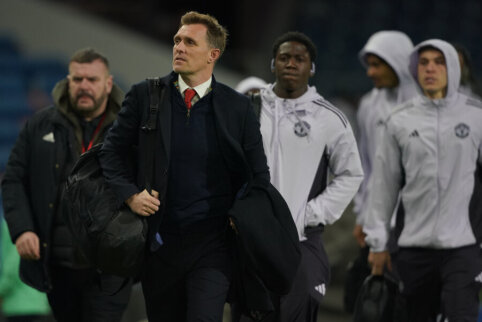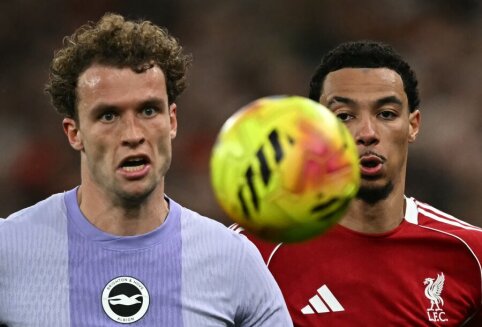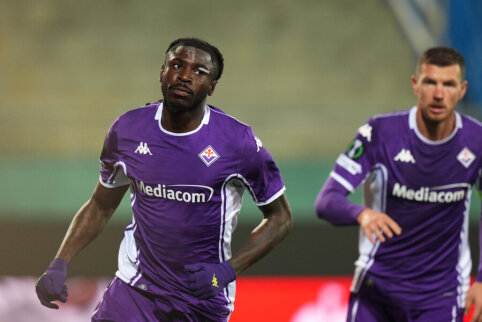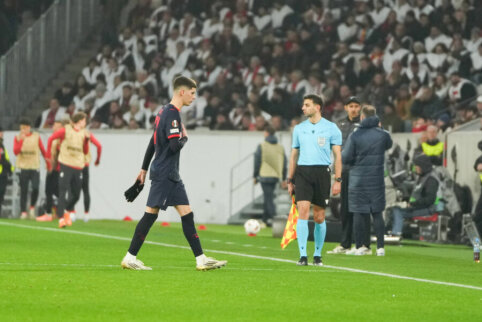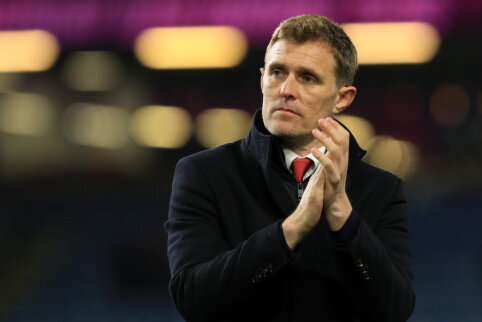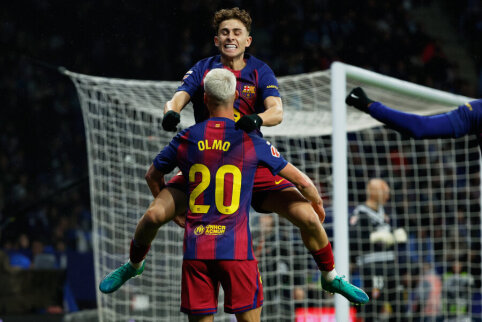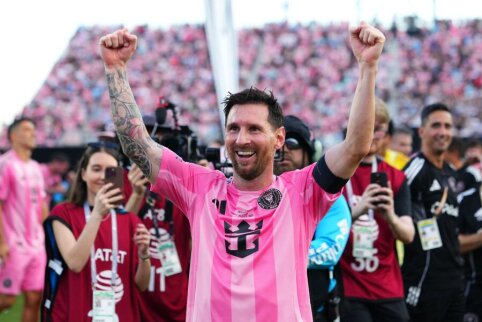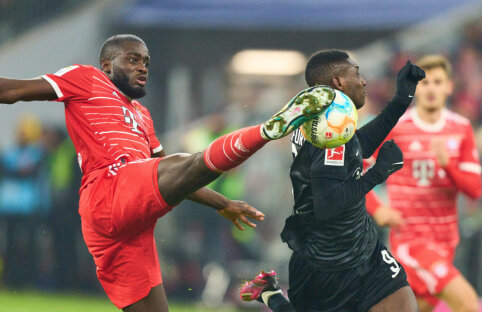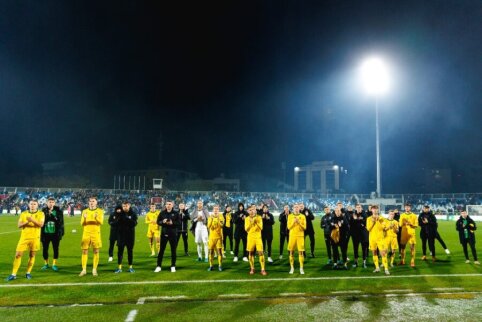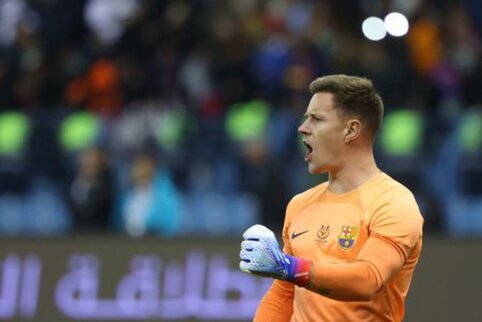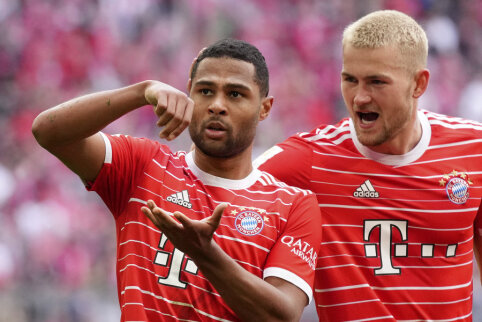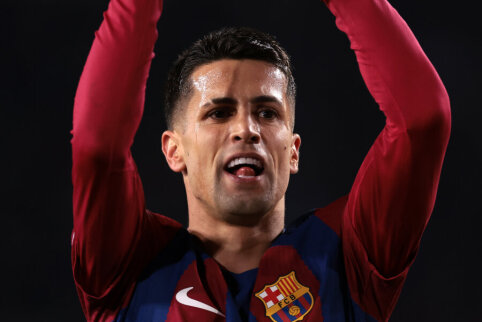
The global football community, FIFA, should boycott the 2018 World Cup in Russia: Russia, waging war in Ukraine, would see the tournament as its ideological victory, showing that disagreements with the West over Ukraine are insignificant. This is what philosopher Leonidas Donskis says to LRT.lt. In turn, sports journalist Modestas Krukauskas notes that a boycott is unlikely to happen, and that "FIFA is a big private company that chooses money over moral values." In commemoration of the anniversary of the annexation of Crimea by Russia and the ongoing war in Ukraine, FIFA (International Federation of Association Football) does not consider the possibility of not hosting the premier sporting event in this country. "As the main world football organization, FIFA responsibly fulfills its functions and supports peaceful democratic dialogue. FIFA condemns any form of violence and will continue to use its tournaments to promote dialogue, peace, and understanding among nations. History has shown that so far boycotts or isolation of sports events, confrontation policies have not been the most effective ways of solving problems. Hosting the FIFA World Cup with all the attention it attracts can be a powerful catalyst for dialogue between people and governments, helping to bring about positive social changes. The FIFA World Cup in the spirit of fair play and respect unites teams and nations from all over the world, from qualifying matches to the final showdown," wrote FIFA representatives to LRT.lt. The association is convinced that through football, specifically the FIFA World Cup and the international attention it receives, positive changes can be achieved in the world. "However, football cannot be seen as the solution to all problems, especially those related to world politics. We have already seen that the FIFA World Cup can be a force for good, and FIFA hopes that this will also be the case in the 2018 World Cup in Russia," say association representatives. Money and low ethical standards come to the fore In the 1980s, the West decided to boycott the Olympic Games held in Moscow after the Soviet Union's army started a war in Afghanistan. Delegations from the United States, Canada, Norway, West Germany, Turkey, Israel, and 23 other countries did not travel to Moscow. However, all those interviewed by LRT.lt strongly doubt that a boycott of the World Cup in Russia will happen. The only country that has mentioned a potential boycott, as sports commentator and journalist Nerijus Kesminas notes, was Great Britain. "If the major European and South American national federations united, then it might be possible, but so far, as far as I have heard, only the British talk about it. From the current perspective, the likelihood is very small. Everything will depend on how events unfold in the world. But as of now, I think it will be like with Ukraine - everyone talks a lot and does little," N. Kesminas says. Sports journalist Modestas Krukauskas notes that the situation in many ways differs from the Moscow Olympics: FIFA is a public, not a governmental organization, and only they can change decisions. "In my opinion, it's unrealistic for the tournament to be boycotted. Only a global conflict could stop this matter. FIFA has too many bought out people. Also, it should be noted that the 2020 European Football Championship will be held in St. Petersburg, and this decision was made after the occupation of Crimea. So UEFA (Union of European Football Associations) also turned a blind eye. It's all about business; FIFA is a huge closed joint-stock company that chooses money over moral values," says M. Krukauskas. He reiterates N. Kesminas' point, noticing that this tournament, like the 2022 World Cup in Qatar, "is bought, votes are bought for money." In turn, philosopher L. Donskis argues that we are mistaken in thinking that organizations where representatives of democratic world states play a significant role naturally adhere to high political ethics standards. "Russia's actions clearly clash with any spirit of the Olympic Charter. I have no doubt that dissatisfaction from countries will strengthen, but whether it will be enough for the FIFA World Cup not to take place in Russia and for at least the major countries to boycott it is hard to say. There are chances, but we cannot confuse Western states' parliaments and institutions with international sports organizations, where people with very low ethical standards often prevail. I'm afraid FIFA's decisions might disappoint us," regrets L. Donskis. In any case, Russia will win in the tournament According to Leonidas Donskis, the Russian national football team wouldn't even need to win the World Cup for it to claim a victory. If this sports event takes place in Russia, it will be its political and propaganda victory, as L. Donskis puts it. "I think the championship in Russia should be boycotted. The logic that says we should not mix sport and politics only politicizes sport. If the championship takes place in Russia, it would undoubtedly be seen as its ideological victory, show that disagreements with the West over Ukraine are minor, and big world sports events could take place in Russia. In my opinion, this would be a huge propaganda and political victory for the Kremlin," asserts the interviewee. Politician Laurynas Kasčiūnas also agrees that it would be "good and very healthy if the championship in Russia were boycotted." However, according to the political scientist, Russian media would turn such a boycott into another anti-Western hysteria, claiming that the West united against Russia, taking away the Russians' fun. According to L. Donskis, the West has not suffered much, or at least not enough, to take away the Kremlin's propaganda and political victory: "The only thing that shows Western dissatisfaction with Putinism is the downed Malaysia Airlines plane with Dutch passengers. If something happened within the European Union or NATO, the reaction would be different. Today's reaction is like this because Ukraine is not the West. The West hasn't suffered much, this is all uncomfortable for them, but it's a distant abstraction." "Do not mix sport with politics" - a little song According to M. Krukauskas, the saying "do not mix sport with politics" is just an excuse. "When someone tells me to separate politics from sports, I always respond - 'separate rivers, rain from the water in the ocean, then we can talk'," says M. Krukauskas. In turn, L. Donskis notes that the phrase "do not mix sport with politics" shows that politics dominates sports. "The question is - what level of politics and what approach to human rights and peace do people who adhere to high ethical standards of democracy play in sports organizations. The relationship of sports with politics depends on whether sports organizations are dominated by soulless technocrats for whom only money matters, or by people who understand the democratic rules of the world," points out L. Donskis. According to the philosopher, the world shouldn't repeat the mistakes of the past. In L. Donskis' opinion, not boycotting the 1936 Olympics in Berlin, Nazi Germany, was undoubtedly a huge mistake. "The 1980 Olympics in Moscow were a little different case. Some countries boycotted it. Of course, Moscow later retaliated and its satellites did not participate in the 1984 Los Angeles Summer Olympics. However, this does not change the essence of the matter: it was decided not to go to a country that started a war. In my opinion, if Russia does not end its war in Ukraine and does not withdraw in the near future, there should be no consideration of holding the World Cup in the country. But if it takes place there, I must admit I would be extremely sad, and although I am a big football fan, I probably wouldn't even watch that championship," says L. Donskis.
Vilija Andrulevičiūtė, LRT.lt
